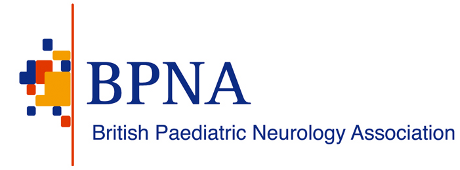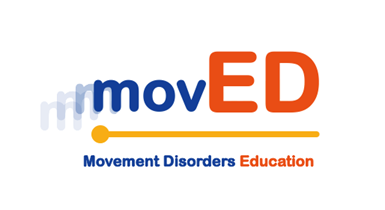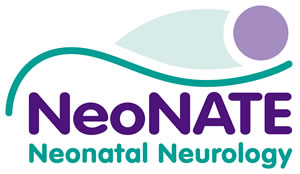The Ronnie MacKeith Prize
The Ronnie MacKeith Prize is awarded to those who have made a significant contribution to paediatric neurology as judged by published work and who were under the age of 40 years or within 5 years of obtaining a CCST, whichever was later.
|
Date |
Place |
Speaker |
Title of Talk |
|
|
1982 |
Birmingham |
Decided to award The MacKeith Prize |
|
|
|
1983 |
Oxford |
|
||
|
1984 |
Glasgow |
|
||
|
1985 |
Sheffield |
|
||
|
1986 |
Cardiff |
|
||
|
1987 |
Nottingham |
|
||
|
1988 |
Liverpool |
|
||
|
1989 |
Leeds |
Linda de Vries |
An integrated approach to leukomalacia |
|
|
1990 |
Dublin |
Not awarded |
|
|
|
1991 |
Durham |
Janet Eyre |
|
|
|
1992 |
Bath |
Jo Poulton |
Mitochondrial DNA and geentic disease: recent advances |
|
|
1993 |
London |
Robert Surtees & Peta Sharples |
|
|
|
1994 |
Birmingham |
Not awarded |
|
|
|
1995 |
Cambridge |
Helen Cross & Francesco Muntoni |
|
|
|
1996 |
Southampton |
Not awarded |
|
|
|
1997 |
Oxford |
Charles Newton |
|
|
|
1998 |
Manchester |
Colin Ferrie |
The childhood epileptic encephalopathies: new insights from PET and other studies |
|
|
1999 |
Belfast |
Vijeya Ganesan |
Causes and consequences of childhood stroke |
|
|
2000 |
Glasgow |
Sameer Zuberi & Kate Bushby |
|
|
|
2001 |
London (Guy's) |
|
||
|
2002 |
Newcastle Upon Tyne |
Richard Gilbertson & Rod Scott |
|
|
|
2003 |
Liverpool |
Russell Dale |
Streptococcus and the Basal ganglia |
|
|
2004 |
Sheffield |
Not awarded |
|
|
|
2005 |
London |
Finbar O'Callaghan |
Tuberous sclerosis complex: past, present and future |
|
|
2006 |
Bristol |
Heinz Jungbluth |
Expanding range of phenotypes associated with mutations in the skeletal muscle ryanodine receptor (RYR1) gene |
|
|
2007 |
Edinburgh |
Robert McFarland & Richard Chin |
‘Batteries not included – what causes mitochondrial disease in children? ’Epidemiology of Childhood Convulsive Status Epilepticus |
|
|
2008 |
Leeds |
Andrew Lux |
IS you is, or IS you ain’t (ma’ Baby)? And how should we treat infantile spasms anyway? |
|
|
2009 |
Birmingham |
Jeremy Parr |
Identifying clinical phenotypes in the search for autism susceptibility genes |
|
|
2010 |
Edinburgh, hosted by Wales |
Manju Kurian |
Infantile Parkinsonism-Dystonia: a novel neurotransmitter disorder and ‘Dopamine Transportopathy' |
|
|
2011 |
Edinburgh, hosted by Oxford |
Not awarded |
|
|
|
2012 |
London, hossted by Nottingham & Leicester |
James Boardman |
Developing neural systems are altered by preterm birth |
|
|
2013 |
Manchester |
Anna Purna Basu & |
“Hemiplegia – the other half of the story” & “SCN1A related epilepsies: genotypes, phenotypes and clinical utility of genetic testing” |
|
|
2014 |
Winchester |
Tomoki Arichi |
Functional MRI of the perinatal brain |
|
|
2015 |
Newcastle |
Andrew Mallick & Michael Absoud |
Childhood stroke: who, why and what happens Childhood central nervous system acquired demyelinatingdisorders: incidence, clinical features, MRI characteristics and prognostic features |
|
|
2016 |
Sheffield |
Amy McTague |
Elucidating disease mechanisms in epilepsy of infancy with migrating focal seizures |
|
|
2017 |
Cambridge |
Sukhvir Wright |
Paediatric autoimmune epileptic encephalopathies - from symptoms to synapse |
|
|
2018 |
London |
Yael Hacohen |
Antibody biomarkers of CNS neurological disorders in children |
|
|
2019 |
Liverpool |
Suresh Pujar |
Long-term outcomes after childhood convulsive status epilepticus: What are the determinants of adverse outcomes? |
|
|
2020 |
Belfast |
Richard Rosch |
From fish to physics - new perspectives on abnormal brain dynamics in childhood epilepsies |
|
|
2021 |
Virtual (hosted by Oxford) |
Francesco Saverio Tedesco |
Engineering human stem cells for neuromuscular disease modelling and therapy development |
|
|
2022 |
Virtual (hosted by Dublin) |
Joseph Symonds |
Precision epidemiology in early childhood epilepsies |
|
|
2023 |
Edinburgh |
Sophie Adler |
Integrating AI into the diagnosis of paediatric focal epilepsies |
|
|
2024 |
Bristol |
Dora Steel |
Diagnosis, discovery and deepening understanding of rare movement disorders with whole genome sequencing |
|
|
2025 |
Oxford |
Elizabeth Radford |
Turning the tide of variants of uncertain significance: a role for saturation mutagenesis? |
|









